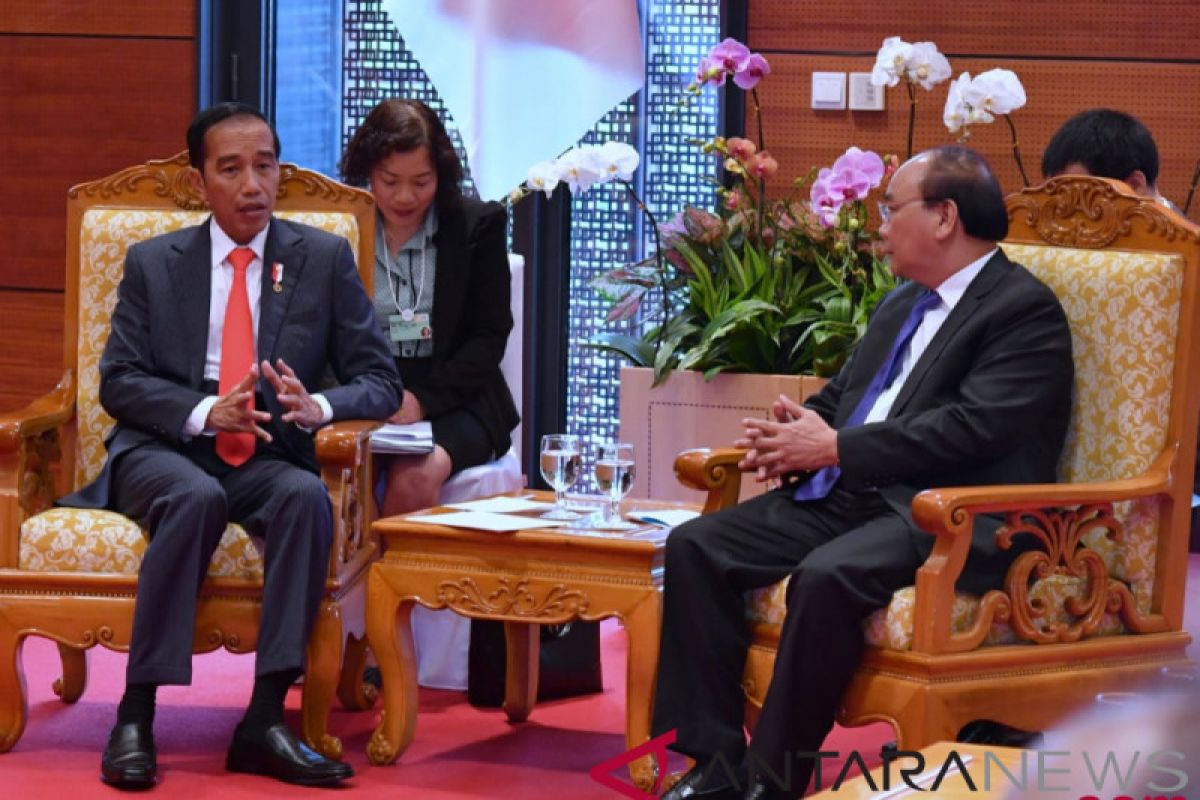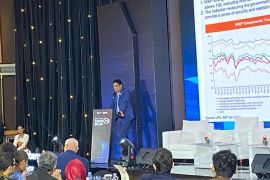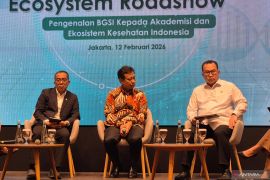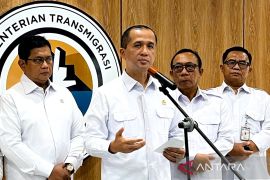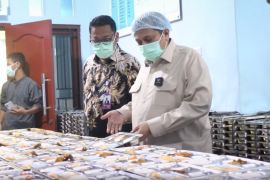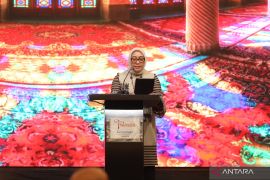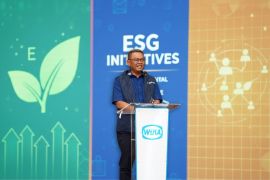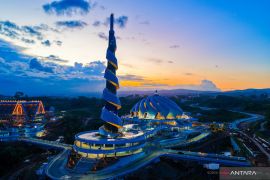In the face of the fourth industrial revolution, the Indonesian government has launched the Making Indonesia 4.0 Road Map as a clear strategy and direction in the readiness to enter and implement 4.0 industry in the country.
The aspiration contained in the Making Indonesia 4.0 Road Map is Indonesia's target to be part of the 10 largest economies in the world by 2030, according to Head of Industrial Research and Development Agency (BPPI) of the Ministry of Industry, Ngakan Timur Antara, in Jakarta on Sunday (Nov 25).
The target is achievable because it can be boosted by a 10-percent increase in net exports of the Gross Domestic Product (GDP), two-fold productivity increase, and the creation of 10 million new jobs in 2030.
Hence, the government will remain focused on accelerating the country`s industrialization as it will bring multiplier effects to the national economy.
"Therefore, the government is resolved to create conducive investment climate," Antara noted here on Sunday.
He stated that his side has taken strategic steps, such as economic policy packages, incentives, and ease of doing business facilities.
The multiple effects of the policy included added values of raw materials, local workers absorption, and increase in foreign exchange earnings from exports, taxes, and excise duties.
The efforts could accelerate the distribution and national inclusive and quality economic growth. This leads the government to carry out economic transformation which shifts consumption- to manufacturing-based economy.
"Therefore, our economy would be more productive and provide wider multiplier effects," he added.
Therefore, the Ministry of Industry is consistent with the implementation of the industrial downstreaming in the non-oil/gas processing sector, with an emphasis on stock chain approach, so that it would be more competitive at the domestic, regional, and global levels.
The Industry Ministry noted that investment in the manufacturing industry in the past four years has grown significantly. In 2014, it reached Rp195.74 trillion, and in 2017, it rose to Rp274.09 trillion.
Meanwhile, in the first semester of 2018, manufacturing investment reached Rp121.56 trillion, with a total workforce currently at 17.92 million people.
Furthermore, in the 2014-2017 period, there was an increase in the population of large and medium industries. From 2014 to 2017, it rose from 25,094 business units to 30,992 business units, growing by 5,898 business units.
Meanwhile, the small industrial sector also experienced an increase, where in 2014, it was recorded at 3.52 million business units and 4.49 million business units in 2017. That means that it grew to 970 thousand small industries over the past four years.
The three manufacturing sectors were able to surpass 5.15 percent growth in the third quarter of 2018, namely the textile and apparel industry grew by 10.17 percent, the food and beverage industry was at 8.10 percent, and the transport equipment industry was at 5.37 percent.
"These three sectors are also a choice in Making Indonesia 4.0 a pioneer in the application of industry 4.0 in Indonesia, besides chemical industry and electronics industry" Antara remarked.
The Central Bureau of Statistics (BPS) data showed that in the third quarter of 2018, the manufacturing industry still had the largest contribution to the national Gross Domestic Product (GDP) of 19.66 percent.
"The contribution was that Indonesia was in the ranks of the world`s elite as an industrial country," he noted.
According to the United Nations Industrial Development Organization (UNIDO) report, Indonesia ranks the world`s ninth largest value-added country in the industrial sector.
In addition, from the percentage of industry contributions, Indonesia is also in the top four in the world. "If it is assessed from the global competitiveness index, which is currently introducing a new method with the indicator of application of industrial revolution 4.0, Indonesia ranks up from position 47 in 2017 to the 45 in 2018," he explained.
Meanwhile, Nikkei and IHS Markit survey results showed that Indonesia`s Purchasing Managers` Index (PMI) in October 2018 was at 50.5 or still expansive.
In fact, Indonesia managed to rank third in ASEAN. Indonesia`s position is better than Malaysia (49.2), Thailand (48.9), Myanmar (48.0), and Singapore (43.3).
Virtually, in terms of embracing Industry 4.0, Indonesia is much late compared to other ASEAN member countries.
According to Secretary General of the Ministry of Communication and Information Technology, Farida Dwi Cahyarini, Indonesia lagged somewhat behind neighboring countries.
For instance, Thailand had since 2014 embraced Industry 4.0, while the Indonesian government had recently initiated the concept around 2018.
Cahyarini noted that the Industrial 4.0 era was marked by changes, especially in terms of digitalization technology, and so the leadership pattern should also be improved. Thus, she warned against leadership failure to keep up with the technological advancements, especially by state-owned enterprises (SOEs).
The secretary general of the Ministry of Communication and Information Technology stated that SOEs and their various subsidiaries were expected to adapt to various technological advances, such as digitalization, which is currently being applied in several sectors.
SOEs are expected to improve their performance in order to face the era of Industry 4.0 that is characterized by a rapid progress in digitalization in various aspects of life. "SOEs and their subsidiaries are expected to deliver better performance, so that they will be able to compete in future, especially in the era of industrialization," Cahyarini pointed out in Jakarta on Wednesday (Nov 21).
Editing by Rahmad Nasution
Reporter: Andi Abdussalam
Editor: Heru Purwanto
Copyright © ANTARA 2018
